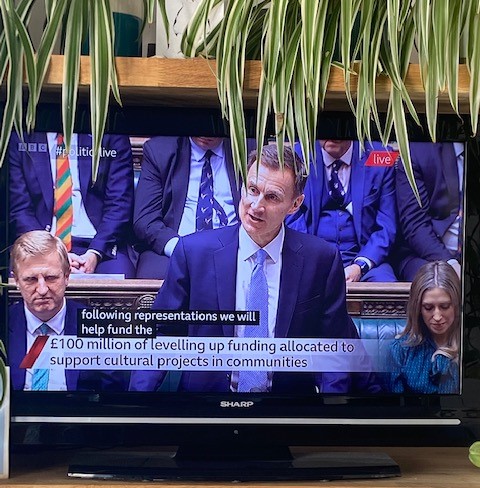Chancellor Jeremy Hunt promised his Spring budget would deliver “permanent cuts in taxation”. A bold claim indeed.
Hunt acknowledged the way we tax people’s income is unfair. Those in employment must endure the double taxation of work – income tax and national insurance. So, from 6 April he said he was cutting employee national insurance by a further 2p, from 10% to 8%.
The 2 million self-employed in the UK also get a second tax cut through a further 2p reduction in the NICs main rate from 8% to 6%.
Another big announcement was the abolition of ‘non-dom’ tax status, with the chancellor replacing it with a residency-based system. From April 2025 new UK arrivals will not have to pay any tax on foreign income for four years. However, after this time, if they still live in the UK they will pay the same tax as other UK residents. Hunt said the changes will raise an extra £2.7 billion a year.
The amount businesses can earn before registering for VAT has been increased from £85,000 to £90,00, the first rise in seven years. But some were hoping for a figure nearer to £100,000, because of fiscal drag.
The government is consulting too on extending full expensing to leased assets for businesses. And the chancellor said it will introduce it as soon as he can.
To help small business Hunt said he was extending the growth guarantee fund, helping 11,000 small business access the finance they need..
When it comes to child benefit he explained he will be consulting on new rules to make the benefit apply to collective household income. As an immediate help Hunt announced the higher income child benefit charge threshold will increase from £50,00 to £60,000. The top taper at which amount the benefit is withdrawn goes up to £80,000.
Some other key takeaways:
Alcohol duty frozen until February 2025.
Fuel duty remains at current rate, frozen for another 12 months.
Air Passenger Duty (APD) for business class travellers increased.
New excise duty in vaping products from October 2026, and there will be a one-off rise in tobacco duty.
New British Saving bond will be created, fixed for three years.
New British ISA, which will allow an extra £5,000 tax-free allowance, for public to invest exclusively in the UK.
Windfall tax on oil and gas company profits extended for an additional year to 2029.
The higher capital gains tax on property will fall from 28% to 24%.
Tax relief for furnished holiday lets to be scrapped, with the aim to improve availability of long-term rentals.
Multi-dwelling stamp duty relief has also been abolished.




